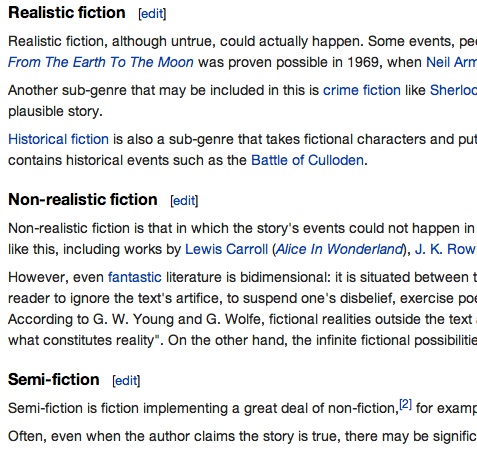Stories Strangely Told: Stories That Break Their Molds
Stories Strangely Told is a monthly series that explores formal experiment in short-form fiction.
There are stories that break from patterns, and stories that pull so hard at their stitching that they unravel themselves in the process. The former is old news—expectation and deviation, it’s how our oldest tales operate. There’s the Greek chorus that reminds us the rules, and the actors who turn around and break them. There’s Ovid’s sweeping Metamorphoses, its pattern strict dactylic hexameter, which strings together myths with ever-shifting twists in language. In the Book of Job pattern is the cycle of speeches between Job and his friends, all trying to account for his misery. After Job puts the matter to rest by protesting his innocence, God descends in a furious whirlwind to berate him for thinking he can understand divine logic, the pattern of reality and meaning:
Gird up your loins like a man, I will question you, and you shall declare to me.
Where were you when I laid the foundation of the earth? [. . .]
Who determined its measurements—surely you know!
Stories that damage themselves in their deviation are harder to come by, and a little tricky to pin down. King Lear is one, interesting because it cribbed a lot from Job: though it breaks out of its patterning with twice the restlessness of the whirlwind and none of the explanation. The play starts with a strange familial love test—a twisted scene pulled from a fairy tale. But after Cordelia refuses her dad’s game the story splits into two: a somewhat typical Shakespearean political conspiracy, and a meandering multi-act dialogue between Lear and his wisecracking fool. When Gloucester is brutally assaulted (without much by way of obvious motivation) the pattern shifts again. The fool vanishes without explanation. Characters start dying. There’s dramatic irony and tragic guilt. Lear seems to keep killing itself off to resurrect in different form. The start and end to the play, beside one another, appear birthed from different planets.
In contemporary short fiction tonal shifts and pattern breaking are common, but it’s pretty easy to see why the Lear-level of formal experiment is a little less usual. Short stories have the burden of little space. They need to pull you in fast then communicate ideas that seem worth your time. A lot of work goes into getting the pulse beating, so to turn around and derail the thing is risky.
But we do have recent stories that manage the task. Take “Octet,” the middle story in David Foster Wallace’s Brief Interviews with Hideous Men. The premise is strange to start: a series of shorts, labeled as pop quizzes, that end with murky questions. What’s more, the numbering is off. We go from “Pop Quiz 4” to an arduous “Pop Quiz 6,” which gets abandoned midway through for “Pop Quiz 7.” When we return to the abandoned quiz—now “Pop Quiz 6(A)”—Wallace gives us pages of a sort of loosely hung parable with the end instruction to “Evaluate.”
It’s after this, at “Pop Quiz 9,” that Wallace (or his fictive-self, at least) climbs out from under the whole thing to take the metafictional risk of addressing us directly. He admits the pop quizzes aren’t working. They’re not able to express what he wants to get across, which has something to do with a “queer urgent ambient interhuman sameness” that the right kind of risk might communicate. His idea is somewhat unnameable, though it has to do with vulnerability and shame, and a willingness to be really brutally honest and to take the risk of looking grotesque and absolutely desperate. As the title promises, the collection is full of interviews with men who cheat and dissemble and monologue and use other human beings as objects. So if the quizzes are their own sort of hideous monologue (a pop quiz is, after all, the rather innocuous system by which a minor authoritarian figure interrogates human beings on his own precise terms) Wallace’s attempt to break free is an attempt to dig out from under the patterning that “Octet” is sandwiched in. His is an attempt to come to you hat in hand, he writes, sort of like a reader, “down here quivering in the mud of the truth with the rest of you, instead of a writer, whom we imagine to be clean and dry and radiant.”
Of course mold breaking doesn’t always need to look metafictional. “A Good Man Is Hard to Find” starts with a car trip and ends with a reckoning. Joy Williams’s “ACK” starts with a backyard gathering in Nantucket and the strange promise that a mother will later describe her ten adult children. When she finally starts up, her way of presenting them is like a Victorian novel turned rotten—she describes their fears and shortcomings and motivations with bizarre narrative authority. Six kids in, another character gets up to leave; she sees where this story is going and needs to escape it.
We also have stories that pull off pretty amazing feats between relatively tight walls. Let’s end with Lorrie Moore’s “Real Estate,” the tenth story in Birds of America, which does its mold breaking in the first three pages.
By the time we hit it, if we’re reading the collection in order, all of the shared domestic desperation and painful isolation and mocking self-awareness of Moore’s characters thus far seem to swell up in Ruth’s frenzied attempt to lay out her situation. Ruth “could almost burst—could one burst with joylessness? What she was feeling was too strange, too contrary, too isolated for a mere emotion.” The problem is that her husband is having yet another affair. She always discovers them in spring: “a premonition of death. A rehearsal. A secretary’s call to remind of the appointment.” Ruth seems magnetized to clichés, but clichés that spin madly on the axis of sharp phrasing. Her situation is so bloated and overworked and characteristic of the stories that have come before hers that something finally snaps:
The last [affair] was years ago, and what did she care about all that now? There had been a parade of flings—in the end, they’d made her laugh: Ha! Ha! Ha! Ha! Ha! Ha! Ha! Ha! Ha! Ha! Ha! Ha! Ha! Ha! Ha! Ha!
Ha! Ha! Ha! Ha! Ha! Ha! Ha! Ha! Ha! Ha! Ha! Ha!
And then in a simple page flip where we end up is the image above: an entire tablet of Ha!’s before us. Another turn of the page and the story dusts itself off, continuing on in Moore’s regular tone. What’s gained though is a broader palate of communication. It’s a risk, but it’s one that’s worth taking.


